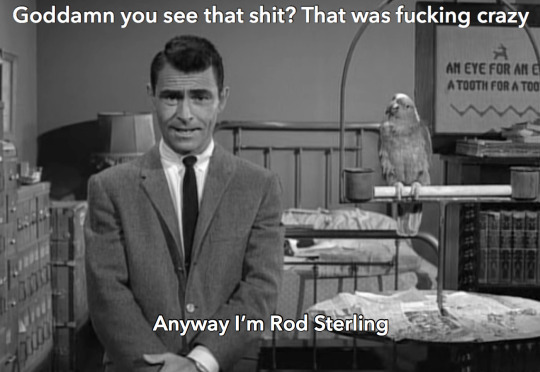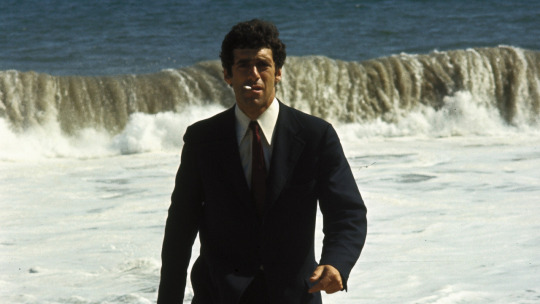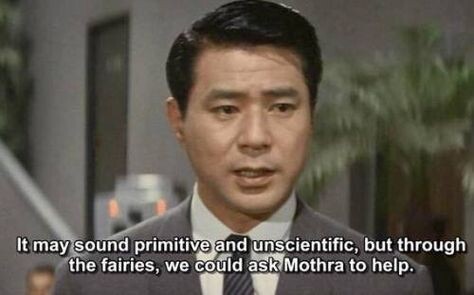Text
The tale of the CD-I is a really interesting one. It's not only a terrible console with a lot of terrible games, it also had a really terrible sales strategy. They licensed the format to multiple companies, so there were multiple different versions of the console floating around at the same time, with different price points.
It was originally meant as general home media device (movies, music, limited online connectivity) so the games sucking wouldn't have really been a big deal if not for the fact that it really never found a place in the market otherwise. Games were the only killer apps they could come up with, which would have been fine if they weren't so incredibly terrible. Seriously do look these games up, it's just slop.
As for how Nintendo, the company that locks their IP down tight, could allow this to happen is another fun story. Basically, the steps are as follows:
Partner with Sony to make a CD add-on for the SNES
Break the deal and go with Philips (this directly pushes Sony to create the Playstation and completely dominate the next two generations. OOPS)
Witness the complete and utter failure of the Sega Mega-CD and decide that the CD ROM format is the work of the devil and they'll stick with cartridges thank you very much.
Give Philips carte blanche to basically do what they want with a few properties, hoping that they won't fuck it up too badly.
Philips, a company that doesn't make videogames, contracts a different company to make some Zelda games and mandates that they have full FMV, CD quality audio, use as many features of this non-videogame console, and also release 2 games in the space of a single year with a budget of USD $600,000. All for a console that doesn't really work as a videogame console, or even anything else other than a great way to waste 2000 dollars.
Nintendo locks down their IP tight because holy hell what a nightmare these games were.
It's a miracle that the damn things didn't set your house on fire when you loaded the discs. I can't be too hard on the people actually making the game but I can mock the executives that had no idea what they were doing quite easily!
I think what a lot of attempts to emulate the Philips CD-i cutscene style get wrong is that yes, these folks had no idea how to animate, but that also meant having no acquaintance with any of the labour-saving practices of mainstream animation, and thus not knowing what not to do. I know it's a meme, but look up the original Morshu animations some time and pay attention to how absurdly complicated his poses and gestures are for a guy who has a grand total of two voiced lines.
#gaming#video games#game design#animation#philips cd-i#legend of zelda#philips#nintendo#wand of gamelon#faces of evil#sony#sony playstation#sega mega drive
4K notes
·
View notes
Text
I regularly find it hard to decide what to watch, which is why it's great to just be given recommendations. Something about a recommendation puts it higher on the watchlist than if I just came across a movie I find interesting.
To that end I ask: what's a movie you think everyone should watch at least once? If I haven't seen it it's going on my list.
If I had to pick an answer, I think I'd go with Sleuth. It's about two men working together to commit the perfect crime: one man ransacks the other man's house. He sells the jewels, and the other man gets the insurance money. And then it goes one step further. And then another, and then another. Everyone I show that movie to has their eyes glued to the screen, especially when it really gets going. However it's impossible to find the 1972 version online, and the 2007 remake is hot garbage.
For an easier to find movie, I'd pick Sorcerer. 4 men with dangerous pasts are hired to drive trucks in the jungle, with poor road conditions and lots of offroading required. The cargo: unstable nitroglycerin. A single bump could kill them all. It's an unlicensed remake of The Wages of Fear and it's just incredible.
#movie#cinema#film#watchlist#sleuth#Sleuth (1972)#michael caine#sorcerer#william friedkin#reccomendation#joseph l. mankiewicz
0 notes
Text
I've seen 2 but I haven't seen A Bay of Blood. Adding it to the watchlist!
Giallo films are great, because they're like Italian slashers mixed with Scooby-Doo. You see the killer committing horrible murders on screen but you also follow someone trying to solve the mystery. They're horrific but also frequently wacky and funny, and usually have the greatest shots you've ever seen in your life. Just a wild, wild ride for every one.
9 notes
·
View notes
Text
Giallo films are great, because they're like Italian slashers mixed with Scooby-Doo. You see the killer committing horrible murders on screen but you also follow someone trying to solve the mystery. They're horrific but also frequently wacky and funny, and usually have the greatest shots you've ever seen in your life. Just a wild, wild ride for every one.
#movie#cinema#film#giallo#scooby doo#deep red#suspiria#the bird with the crystal plumage#dario argento#mario bava#blood and black lace#your vice is a locked room and only i have the key
9 notes
·
View notes
Text

I've loved Giallo films for a long time, ever since first watching Deep Red, directed by Dario Argento. A few days ago I watched his debut film: The Bird with the Crystal Plumage. It's got a great vibe, really interesting mystery and some really weird 70's humor.
What really gets me though is just how impeccably everything is framed and shot. The screenshot here is from one of my favorite scenes. There's only one very small source of light and the rest of the frame is completely dark. Our protagonist walks into this unknown space looking for a serial killer, and who knows what they'll find? That fear is imparted onto the viewer brilliantly this way.
My favorite shot though is one that needs to be experienced in the film (mild spoilers). A character jumps out a window. In other films we'd either see:
a shot of them falling from outside the building
the POV of someone inside the apartment looking down as they fall
the face of the person still inside and their pained expression
stuff like that. We'd see what happened or infer it in some fashion.
In this movie the camera itself falls to the ground while pointing straight down. You don't watch the fall, you feel it. It's easily one of my favorite pieces of cinematography and I honestly want to start directing films so I can steal it myself.
2 notes
·
View notes
Text
There's a similar plot in the 60's Adventures of Superboy cartoons. Episode name Operation Counter Invasion: 3 aliens come to Earth and meet Superboy. He tries to convince them he's just a regular human while also casually destroying everything with superhuman strength. The aliens flee in fear thinking that everyone else on Earth is just as scary and powerful.
One off Superman story where Clark Kent gets classically abducted by aliens in the farm so said aliens can find out more information about human biology and Clark's just like *sucks in air through his teeth* so about that....
17K notes
·
View notes
Text

I just watched Wild Tales today, an Argentinian movie. It's 6 short stories themed around revenge, and every single one of them has this kind of energy around them.
Like there's no moral to be gleaned, and the stories aren't critiquing some flaw in society. It's just a bunch of wild shit that keeps escalating because it's fun, with the level of slapstick violence of a Tarantino film but shot like a serious drama. It's so great.
2 notes
·
View notes
Text
I was thinking about the Super Mario Bros movie for some reason. Not the weird fun one from the 90's, the new popular one. I didn't really like it, because it was mainly a bunch of references to Mario. Meandering plot, uninteresting writing - you'd get the same emotional response from reading a wikipedia page listing all the products Mario was in.
It got me thinking about how Ready Player One was the same way, and why. Why wouldn't I like a movie about a bunch of stuff I already like?
Cinema Paradiso is about the joy you find in watching films. The Fablemans is about the joy of creating films. Living in Oblivion is a critique of how the process of making a film is long, boring and mostly annoying, with the end message being that every film that gets released is a miracle. High Fidelity is literally about music store employees, but it can be generalized to be about the kind of person that enjoys anything seriously. Film buffs, literature nerds, gym rats, anyone that's really into something is represented by that film.
Even if the movie isn't really about art it can still be about nostalgia. Wild Strawberries, My Dinner with Andre, The Holdovers and Mirror are all movies about reflecting on the life you've had and dealing with the emotions of regret and nostalgia. About a time of your life that you wish you could go back to so you could relive it, or a terrible time you'd like to fix retroactively.
Ready Player One and the Mario movie aren't about celebrating films, or games, or any kind of culture and they're not about reflecting on anything. They're just lazy regurgitations of pop culture. Ready Player One will remind you that Akira exists, but it doesn't have anything interesting to say about it. It doesn't have anything to say about the time period that produced movies like Robocop, just that Robocop existed at one point. What reflections or thoughts are to be gained from being told that Back to the Future happened? You're better off just watching Back to the Future.
To prove my point: I namedropped a bunch of movies in this post and it was probably really, really annoying to read as a result.
#super mario bros#movie#cinema#film#andrei tarkovsky#mirror#cinema paradiso#the fablemans#living in oblivion#high fidelity#wild strawberries#my dinner with andre#the holdovers#ready player one#akira 1988#robocop#back to the future
8 notes
·
View notes
Text

The Long Goodbye is a fantastic deconstruction of the noir film, and it helped me finally click into place what noir really is.
The hardboiled detective that is cynical as hell is only that way because he's the last man alive with any decency or humanity. The other people he interacts with during the case, or perhaps at all, don't follow any code. They lie, cheat, steal and do anything and everything to enrich themselves regardless of the cost of others. That's why he's so tired all the time: doing the right thing is exhausting if you know you're only going to be punished for it.
Philip Marlowe in this movie exemplifies that fully. He gives a friend a ride to Mexico, and the next day police are at his door asking questions. Do they simply respect his right to be silent? No, they assault him and imprison him until he talks (he never does, but they let him out anyways when they don't need his testimony anymore). Gangsters are after him for money he doesn't have and had no idea even existed. Everyone lies to him, abuses him or just uses him as a plaything.
What does he do in return? Stay honest and loyal at every turn. He helps his friends, he listens to people that beg him for help. At one point he notices a low level gang member is tailing him. His response is to give him advice on how to better stay hidden, and even tells him where he's going in case he gets lost on the way. He's messing with him, but he's also just straightforwardly helping a person that is actively trying to harm him.
The movie begins with Marlowe trying to feed his cat. His cat wants only one brand of cat food, and he doesn't have it. The store doesn't have it either, so he tries to put other food into an empty can and pretend it's the same. The cat scratches him for his deception and leaves. The cat has the same moral code as Marlowe, the difference being that cats are proud and Marlowe is a complete and utter loser. He's a cat in a world of vicious dogs, including multiple scenes where he is literally chased by a dog.
Most other noir films, especially before this one, doesn't have the hardboiled detective be quite so pathetic. That archetype was created for the 40's and 50's. This film takes Marlowe to the 70's, where he's a man out of time. The world has moved on without him, and his only response is to rage against this change. For Marlowe, that means trying to put on a happy face and uphold his own values no matter what anyone else thinks.
I really thought this was going to be a fun murder mystery (and it still is, the plot is fantastic here) but it's actually a great character study of not just Philip Marlowe but noir protagonists as a whole. Pretty amazing film.
#movie#cinema#film#robert altman#the long goodbye#elliot gould#cat#philip marlowe#noir#film noir#raymond chandler#arnold schwarzenegger has a non speaking role in this and it was extremely jarring to see him there.
34 notes
·
View notes
Text
Something that's been on my mind is why people don't watch a wider variety of films. I'm talking about the kind of person that generally enjoys movie watching but refuses to watch anything "old" or black and white, or foreign, or different in some other way. Rom-coms are certainly treated worse than most genres, and animation is basically considered to be for either children's movies or edgy tv shows. What's the barrier here?
I'm really trying to understand. I think being rigid in those ways is a disservice to yourself; lots of amazing films that might really resonate with you are not going to be recent, mainstream and English. The only way to explore cinema is to explore all of it.
I know I've had this barrier before too. I was worried Bergman would be too artsy and confusing for me to enjoy but then it turned out his work is very approachable and consistently funny too. I thought rom-coms were only enjoyable to women but it turns out when you give them a chance a lot of them are fantastic.
Expanding your boundaries is good, and I'd like to know how to make it easier for people to do. Basically this is all part of a large effort to get more people to watch movies I like, lol. If I could somehow get mass support for Sleuth and get a proper Blu-ray release I would be so happy.
#movie#cinema#film#ingmar bergman#romance#rom com#tv#animation#black and white#foreign film#old films#Sleuth#blu ray
2 notes
·
View notes
Text
The Oscars Hate Animation
First I want to say that I don't hold any animosity towards the films that were nominated for best picture. I haven't seen them all but they all seem pretty damn great (Maestro feels oscar-baity to me but whatever).
What I don't like is how animation is put into its own box. They can't ignore it completely, but they can push all animated works into the animated film category and make sure that none of them can possibly take the main awards. Animation is treated as something for children, or hyper-violent fare for edgy teens.
You couldn't imagine this happening to painters. Vincent Van Gogh was never told that he made nice things for children to look at. Picasso was never told that he could be making "real" art if he switched to photography. A single image is art, but millions in a row to give the illusion of motion is somehow less than art.
It's just all so stupid. Spiderman: Across the Spiderverse is a beautiful movie with such fluid animation, expressive characters and just flush with color. The movie isn't happy with just having a single great art style, instead incorporating new art styles and movements as it switches between universes. It's incredible, and it's given the same amount of recognition as Wish simply because they both happen to be animated. The voice actors were not nominated for their work, neither were the producers, sound designers, editors or even the director. The only recognition it can get is "best movie of this selection that we don't really care about but feel compelled to mention".
If you've never really watched an animated film that you thought was really mature and thoughtful, I've got the just the list for you. Personally I recommend Akira, Perfect Blue, Redline, Angel's Egg, Isle of Dogs and Mad God but most of the movies on that list are pretty great.
#movie#cinema#film#oscars#oscars 2024#wish 2023#spiderman: across the spiderverse#vincent van gogh#pablo picasso#animation#maestro#akira 1988#perfect blue#redline#angel's egg#isle of dogs#mad god#letterboxd#boy and the heron#nimona
19 notes
·
View notes
Text
I've seen people complain that there's no good art being made anymore and everything is just bland. I believe it comes down to two reasons:
The mainstream is fairly bland (arguably not more than usual)
It is really hard to find the unique, interesting stuff if you aren't looking for it.
Like yeah it's easy to get burnt out by superhero fatigue but there's over a century of cinema from around the world to explore. Branching out can be hard but I think if you go in with an open mind you'll find a lot of great films. And it's not too hard to ease into it.
Popular films from the past are easy to get into, while still being different. They aren't making action films like Robocop anymore, where the whole thing is a dark satire of corporatism. Lots of franchises that are still running got started in the 70's and 80's and the original film(s) usually still hold up!
Going back further, silent comedies are timeless. If you've ever loved Mr. Bean then you're going to have a great time with Safety Last or Modern Times. Harold Lloyd, Charlie Chaplin and Buster Keaton were doing looney tunes level stuff before looney tunes even existed.
Going foreign means you can experience new cultural perspectives. Korean thrillers like Oldboy are made differently than American ones. Kurosawa made samurai films but the adaptions were made into wild west films.
There are just so many kinds of films, but the assumption is that movies are either mainstream or arthouse shit for pretentious weirdos. It's a bad assumption and it's holding a lot of people back from watching a lot of really great films.
Exploring cinema absolutely means you'll find a lot of films you hate. They don't appeal to you, they're poorly made, the cultural dissonance is too much, whatever. But it also means finding new kinds of films that you might really love.
There's over a century of cinema from around the world. What's the likelihood that the only movies you'd ever like are recent ones from your home country?
#movie#cinema#film#mcu#robocop#80s#70s#mr bean#modern times#safety last#harold lloyd#charlie chaplin#buster keaton#oldboy#korean#kurosawa#arthouse
2 notes
·
View notes
Text
Limitless: "We only use 10 percent of our brain."
50 years earlier in X - The Man with Xray Eyes: "We only use ten percent of our eyes."
#movie#cinema#film#roger corman#limitless#x the man with xray eyes#It's such a silly movie but it's pretty well made!
0 notes
Text
Why you should watch foreign films.
They're good. Bong Joon Ho (director of Parasite) says it best.

Movies are a great way to experience other perspectives and cultures. Foreign films are made differently from films you're used to. The style, the editing, the way plots unfold, it's all going to be different in interesting ways. Some examples:
Giallo films (Italian) might have nonsensical plots but they're more focused on emotion and spectacle. You're Vice is a Locked Room and Only I Have The Key might be a mess of a story but it's a wild ride of the type you don't find in America.
Japan has a lot of movies about the horrors of nuclear war and proliferation. Godzilla, Akira and Grave of the Fireflies could not have been made in America. When America makes a movie about nukes we get Oppenheimer, a movie about the people who made the bomb and not the people that suffered under it.
Korea has some amazing thrillers like Oldboy and Memoirs of a Murderer. America remade Oldboy and it was not nearly as good.
These are all broad strokes of course, but the point is that other countries have a lot to offer and you're missing out on so much if you're scared off by subtitles. The way I figure is that 95% of the world's population doesn't live in America, so why assume 100% of good movies come from there?
#movie#cinema#film#giallo#your vice is a locked room and only i have the key#japan#italy#korean#godzilla#akira#grave of the fireflies#oldboy#memoirs of a murderer#America#oppenheimer#foreign film#bong joon ho#parasite
97 notes
·
View notes
Text
Sometimes an adaptation is so strong that it eclipses the source material, so any deviations are assumed to be canonical to the original. This is also true for anything that just happened to filter through pop culture, like King Kong or Godzilla. Some examples that I found:
Dr. Jekyll and Mr. Hyde is a mystery! It's from the point of view of a different character who tries to uncover the relationship between the two characters. Every single adaptation is about how they're both the same person affected by a crazy experiment.
King Kong references just focus on the climax where he climbs the Empire State Building, but most of the movie is about going to the island and what they find there. Natives that revere him as a god, dinosaurs and giant snakes are all present.
Moby Dick is maybe 10% about a guy trying to hunt a white whale and the rest of it is a lot of history and philosophy.
Blade Runner feels like it was based on a dream someone had after reading Do Androids Dream of Electric Sheep, but without remembering all the details. In the book Deckard is married, owns a machine that helps him experience specific intense emotions, is part of a new age religion based around taking care of animals, has dreams with other people, gets arrested for being a replicant, etc. Every character basically just shares a name, and any events that actually occur in both still end completely differently. There's a scene where Deckard gives a test to someone and finds out they're a replicant. In the movie the creator is pleased because she's a replicant that isn't aware she's a replicant, and she's been passing their tests without being able to pass the police test. In the book they claim she's a human as a way of forcing Deckard to drop the case. It's the exact opposite conclusion.
Blade Runner in particular is the really odd one because it's the only one where the film didn't ruin the book for me. I already know the broad strokes or the important scenes in King Kong, Jekyll and Hyde, Dracula, etc. so there's nothing much there for me to get. Androids is so different from Blade Runner that I had no idea where the story was going to go next and it ended up being a really exciting read for me.
Any piece of media that is adapted and referenced endlessly is probably very, very good and definitely better than the references are so they're worth searching out. If all you know about the Twilight Zone are the Futurama parodies then you are missing out on some prime television.
#movie#cinema#film#king kong#godzilla#do androids dream of electric sheep#blade runner#philip k. dick#deckard#Futurama#twilight zone#moby dick#dr. jekyll and mr. hyde#the strange case of dr jekyll and mr hyde#dracula#empire state building
21 notes
·
View notes
